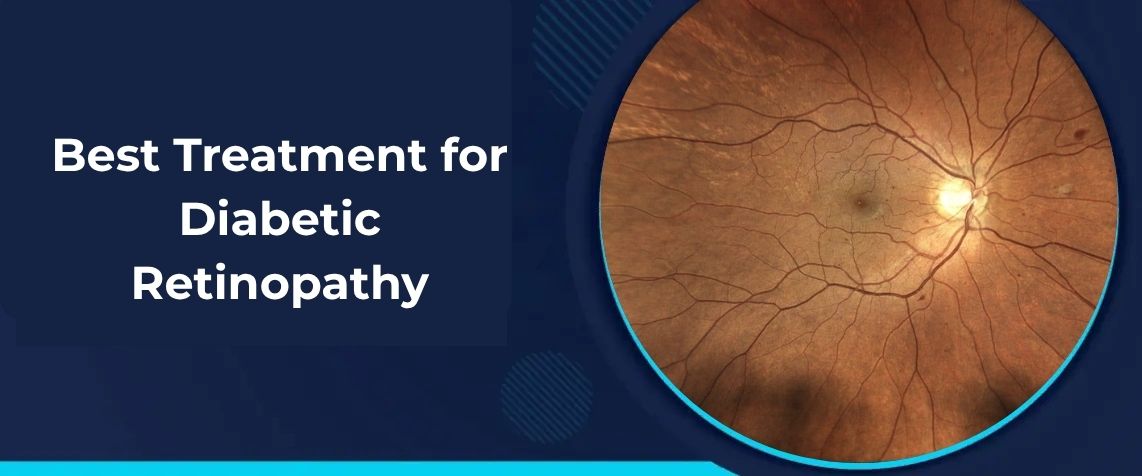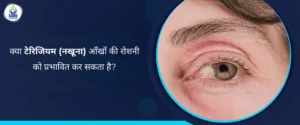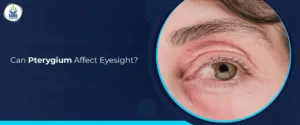Diabetic retinopathy is a serious diabetes-induced eye condition. It strikes when high blood sugar levels damage the tiny blood vessels in the retina, the light-sensitive tissue at the back of the eye. If not diagnosed and treated in time, it can lead to blurred vision and thereafter, even permanent vision loss.
Read more on:
ToggleBest Treatment for Diabetic Retinopathy
The best treatment for diabetic retinopathy depends primarily on its type and stage. The goal of diabetic retinopathy treatment is to slow down or halt the condition from worsening.
Early Stage Diabetic Retinopathy
Monitoring: You may not need any immediate treatment for initial stage or mild nonproliferative diabetic retinopathy. Your eye doctor will carefully monitor your eyes to determine if at all treatment is needed and when.
Regulating Sugar and BP: During this stage, you can just manage your blood sugar and blood pressure levels to keep them within safe limits. This in itself may prove effective in protecting your vision. Stick to the diet recommended by your dietician. Also, take the medications prescribed by your diabetes doctor.
Checking Vision Loss: At times, good sugar management through a healthy diet, regular exercise, and quitting smoking can even restore some of your lost vision. Besides, routine eye examinations are essential.
Advanced (Proliferative) Diabetic Retinopathy
The best treatment for advanced diabetic retinopathy varies according to the specific issues you are facing. An expert eye specialist in Chandigarh may advise one of the following:
Vascular endothelial growth factor inhibitors are medications that are injected into the vitreous, the fluid in the central part of the eye. They work by hampering or stopping the development of new blood vessels and slowing the buildup of fluid.
Different drugs have been approved by the US-FDA for this purpose. Also, these injections may need repetition. In some cases, the medicine is given alongside laser photocoagulation.
Laser Photocoagulation
Laser therapy can prove effective if it is performed before the retina gets severely damaged. It may also prove useful for macular edema.
This treatment uses laser light beams to shrink or burn the abnormal blood vessels in the eye. It can also treat retinal regions that lack proper blood supply. With this, the leakage of blood and fluid can be slowed or even stopped. Additionally, it also controls the growth of anomalous blood vessels.
Conducted in an eye hospital, laser therapy may require multiple sessions.
Vitrectomy
Vitrectomy involves removing the vitreous gel through surgery. It may help enhance vision if the retina has not got seriously damaged.
It’s the preferred line of treatment during advanced stages of diabetic retinopathy – for vitreous haemorrhage and retinal detachment. It is also done in cases of severe scar tissue formation and macular edema.
This surgery is done in a hospital under local or general anaesthesia.
Conclusion
Treatment for diabetic retinopathy can slow down or stop the condition from worsening. Diabetes being a lifelong ailment, retinal damage and loss of vision in the future may still occur. That is why, timely detection followed by appropriate treatment is necessary. You can ensure this through regular comprehensive eye examinations.
If you have diabetes, keep your blood sugar, blood pressure, and cholesterol in check. And yes, do see an eye specialist every year. At Sohana Eye Hospital, the best eye care centre, you find all the world-class diagnostic tools and advanced treatment options to preserve your sight for life.
Stay ahead of diabetic retinopathy with Sohana Eye Hospital.





